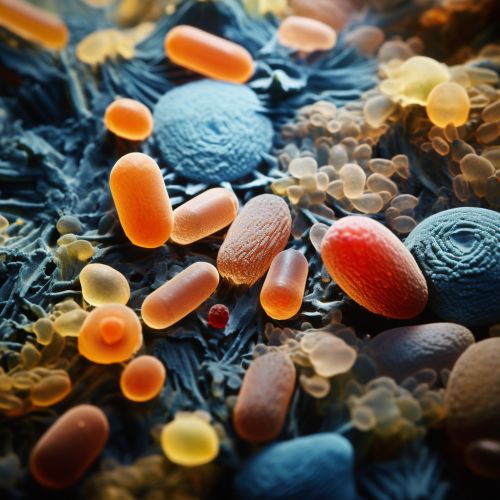Mechanisms of Microbial Biotechnology in Industrial Biotechnology
Introduction
Microbial biotechnology refers to the use of microorganisms in the production of useful products or in the elimination of harmful substances. This field of study is a subset of industrial biotechnology, which involves the use of biological systems, organisms, or derivatives, to manufacture or develop different products.
Microbial Biotechnology
Microbial biotechnology is a branch of biotechnology that applies genetic and microbiology techniques to the manipulation of microbial cells. This branch of biotechnology has the potential to revolutionize industries and improve human health. The use of microorganisms in industrial processes is not new; humans have been using them for thousands of years in the making of bread, alcohol, and cheese. However, the advent of microbial biotechnology has expanded the use of microorganisms to include the production of pharmaceuticals, biofuels, and other industrial products.


Mechanisms of Microbial Biotechnology
Microorganisms are used in biotechnology due to their diverse metabolic capabilities and their ability to quickly adapt to changing environments. The mechanisms of microbial biotechnology can be divided into three main categories: production, transformation, and elimination.
Production
Microorganisms can be used to produce a wide range of products, from food and beverages to pharmaceuticals and biofuels. The production process typically involves the use of a specific strain of microorganism that has been genetically modified to increase its production capabilities. For example, Saccharomyces cerevisiae, a type of yeast, is commonly used in the production of beer, wine, and bread.
Transformation
Microorganisms can also be used to transform one substance into another. This is often done through a process known as fermentation, in which microorganisms convert sugar into alcohol. However, fermentation is just one example of microbial transformation; microorganisms can also be used to transform waste products into useful substances, such as the conversion of agricultural waste into biofuels.
Elimination
Finally, microorganisms can be used to eliminate harmful substances. This is often done through a process known as bioremediation, in which microorganisms are used to break down pollutants. For example, certain types of bacteria are capable of breaking down oil, making them useful in the cleanup of oil spills.
Applications of Microbial Biotechnology in Industrial Biotechnology
Microbial biotechnology has a wide range of applications in industrial biotechnology. These applications can be broadly categorized into three main areas: pharmaceuticals, agriculture, and energy.
Pharmaceuticals
In the pharmaceutical industry, microorganisms are used in the production of antibiotics, vaccines, and other drugs. For example, the antibiotic penicillin is produced by the fungus Penicillium chrysogenum. In addition, microorganisms are used in the production of insulin, a hormone used in the treatment of diabetes.
Agriculture
In agriculture, microorganisms are used in the production of biofertilizers and biopesticides, which are more environmentally friendly alternatives to chemical fertilizers and pesticides. For example, certain types of bacteria are used in the production of biofertilizers that promote plant growth by increasing the availability of nutrients in the soil.
Energy
In the energy sector, microorganisms are used in the production of biofuels, such as ethanol and biodiesel. For example, certain types of yeast are used in the fermentation of sugar to produce ethanol, a biofuel that can be used as a substitute for gasoline.
Conclusion
Microbial biotechnology has the potential to revolutionize a wide range of industries, from pharmaceuticals and agriculture to energy and waste management. By harnessing the power of microorganisms, we can produce a wide range of products in a more sustainable and environmentally friendly manner.
